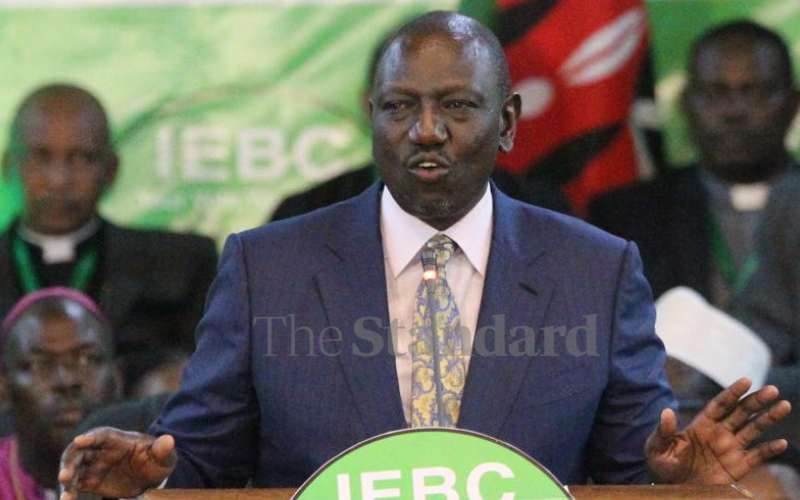×
The Standard e-Paper
Fearless, Trusted News

Kenya Kwanza candidate William Samoei Ruto has been elected Kenya's fifth president after garnering 50.49 per cent of the votes in a closely contested election.
His rival and former Prime Minister Raila Odinga came second, with 48.85 per cent of the votes, following a declaration made yesterday afternoon by Independent Electoral and Boundaries Commission (IEBC) chairman Wafula Chebukati.